The COVID-19 pandemic has been linked to a worrisome trend toward the overconsumption of salty snacks.
Key Takeaways
- Americans consumed more salty snacks as they stayed at home during the pandemic
- A study has linked the COVID-19 pandemic to increased sodium intake
- Pandemic dietary trends have shown the salty snack category recording a significant jump, growing over 6% from June 2020 to May 2021
- Excessive sodium intake is associated with several health risks, such as hypertension, heart disease, multiple sclerosis, and organ failure
- MicroSalt® can reverse this worrisome snacking-on-sodium trend
Most Americans are aware of the important role the food they consume plays in their overall health and well-being. This knowledge has led to an increased demand for healthier food options over the past decade or so. However, a reversal of this trend began during the COVID-19 pandemic, when many people returned to salty snacks and other unhealthy food options.
An uptick in sales of salty snacks
The uncertainty during the pandemic, coupled with restricted outdoor access, led many families to opt for processed foods and ready meals as a faster, less expensive way to feed their families. The following are some interesting statistics for the 52-week period ending in May 2021, from Information Resources Inc. (IRI):
- The salty snack category grew by 6.1% and had recorded sales of $28.3 billion
- Ready-to-eat popcorn/caramel corn category recorded sales of $1.6 billion and grew by 8.7%
- The Frito-Lay brand grew by 61.3%, while SkinnyPop grew by 13.4%
- The potato chips category recorded sales of $8.3 billion and grew by 3.6%
- The tortilla/tostada chip category recorded sales of $6.3 billion and grew by 5.1%
- The hard pretzels category recorded sales of $1.4 billion and grew by 6.0%
- Baked Ruffles came in at the top, having grown by 169.3%
Being confined indoors and the stress that came with that confinement created the perfect opportunity for binging on unhealthy snacks, which are relatively less expensive and more readily available than fresh, whole foods. Salty snacks such as chips, pretzels, popcorn, tortilla chips, and others became the perfect indoor COVID-19 companion. Food producers introduced new snack flavors that incentivized consumers to continue buying salty snacks throughout the lockdown. A recent study by the University of Minnesota has corroborated this trend.
Study discovers pandemic dietary trends
A 2021 study by the University of Minnesota Medical School and School of Public Health demonstrated correlations between the COVID-19 pandemic and unhealthy eating behavior. Here are six poor eating habits that were highlighted by the study:
- Random eating and snacking
- Eating more, and more frequently
- Eating as a coping mechanism
- Decreased dietary intake
- Pandemic-related decreased dietary intake
- Re-emergence of eating disorder symptoms
As published in the International Journal of Eating Disorders, these disorders were associated with increased depressive symptoms, poorer stress management, and moderate-to-extreme financial difficulties.
Emergence of “hybrid” salty snacks
The 2021 IRI report highlighted a new product category that blends traditional salty snacks with healthy plant proteins such as peas, mushroom, and okra. Convenience stores are finding success in stocking these hybrids that are presented as healthier salty snacks. Even these options, however, are high in sodium and still pose the danger of increased high blood pressure and related complications.
Why is this trend reversal in sodium intake worrisome? It’s no secret that processed salty snacks exceed the 2,300 mg daily sodium recommendation. The national and global burden of disease is likely to increase significantly, should this trend continue.
Harmful effects of excessive sodium intake
1. Blood pressure spikes
Excessive sodium causes water retention, leading to elevated blood pressure. Lack of exercise and increased stress and tension arising from COVID-19 restrictions compound the problem.
2. Development of multiple sclerosis
A study carried out by the University of Vermont in Burlington found that diets high in sodium were a precursor to the onset of multiple sclerosis (MS). Excessive sodium has a negative effect on immune cells, which may exacerbate or even prompt the development of this autoimmune disease.
3. Heart disease
Increased sodium levels can trigger arterial stiffness and cause long-term adverse effects on the heart. The problem is further compounded by the lack of exercise occasioned by COVID-19 restrictions and the stress brought about by the pandemic.
4. Delayed puberty
A study carried out by the University of Wyoming found that consuming dietary salt in excess could cause the late onset of puberty, which could lead to stress, behavioral problems, and reduced fertility.
5. Damage to organs
Organs and organ systems such as the kidneys, brain, heart, and arteries may experience long-term damage from excessive sodium intake, according to recent research by the University of Delaware.
Salty snacks thrived during the pandemic: Who’s the loser?
The pandemic negatively impacted various sectors of the economy. People worked less and subsequently had less money to spend, both on necessities and luxuries. The salty snack category weathered the storm superbly and even achieved double-digit growth in some product categories.
This means that most Americans consumed more sodium and increased their risk for hypertension and other complications.
MicroSalt® can reverse this worrisome trend
Though it is not clear whether the demand for salty snacks will decline as the COVID-19 pandemic comes to an end, MicroSalt® can help reverse these pandemic dietary trends.
MicroSalt is just that: micro-sized salt particles that offer double the flavor of salt but contain 50% less sodium. This means consumers can enjoy salty snacks while reducing their sodium intake by a staggering 50%.
Our team strives to create a new food industry norm where good health doesn’t come second to great taste. MicroSalt® is a proud global winner of the P&G Alumni Network’s 2021 Star Entrepreneur Award. We’d love to help make your product the best it can be. Simply contact us via our message page, connect with one of our international offices, or call 1 (877) 825-0655 to learn more.




